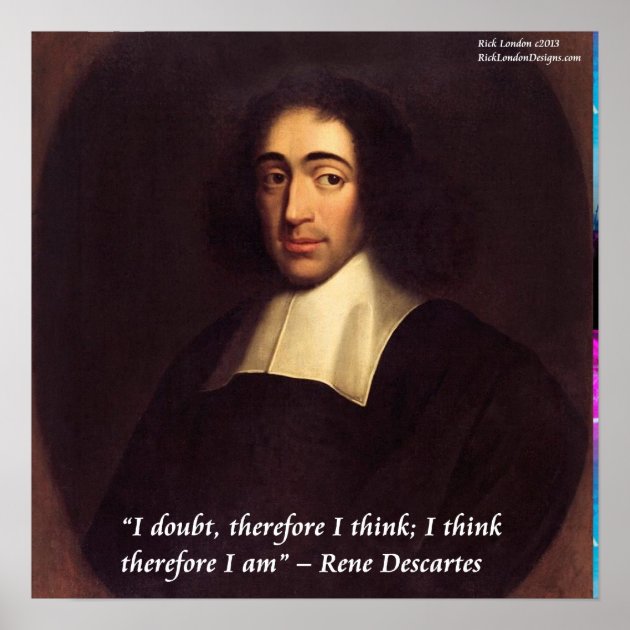
Who said i think therefore i am plus#
Mais aussitôt après je pris garde que, pendant que je voulais ainsi penser que tout était faux, il fallait nécessairement que moi qui le pensais fusse quelque chose Et remarquant que cette vérité, je pense, donc je suis, était si ferme et si assurée, que toutes les plus extravagantes suppositions des Sceptiques n'étaient pas capables de l'ébranler, je jugeai que je pouvais la recevoir sans scrupule pour le premier principe de la Philosophie que je cherchais. The phrase first appeared (in French) in Descartes's 1637 Discourse on the Method in the first paragraph of its fourth part:Īinsi, à cause que nos sens nous trompent quelquefois, je voulus supposer qu'il n'y avait aucune chose qui fût telle qu'ils nous la font imaginer Et parce qu'il y a des hommes qui se méprennent en raisonnant, même touchant les plus simples matières de Géométrie, et y font des Paralogismes, jugeant que j'étais sujet à faillir autant qu'aucun autre, je rejetai comme fausses toutes les raisons que j'avais prises auparavant pour Démonstrations Et enfin, considérant que toutes les mêmes pensées que nous avons étant éveillés nous peuvent aussi venir quand nous dormons, sans qu'il y en ait aucune raison pour lors qui soit vraie, je me résolus de feindre que toutes les choses qui m'étaient jamais entrées en l'esprit n'étaient non plus vraies que les illusions de mes songes. Fuller forms of the phrase are attributable to other authors. The earliest written record of the phrase in Latin is in his 1644 Principles of Philosophy, where, in a margin note (see below), he provides a clear explanation of his intent: "e cannot doubt of our existence while we doubt".

He referred to it in Latin without explicitly stating the familiar form of the phrase in his 1641 Meditations on First Philosophy.

1.4 The Search for Truth by Natural Lightĭescartes first wrote the phrase in French in his 1637 Discourse on the Method.According to this line of criticism, the most that Descartes was entitled to say was that "thinking is occurring", not that "I am thinking". One critique of the dictum, first suggested by Pierre Gassendi, is that it presupposes that there is an "I" which must be doing the thinking. While other knowledge could be a figment of imagination, deception, or mistake, Descartes asserted that the very act of doubting one's own existence served-at minimum-as proof of the reality of one's own mind there must be a thinking entity-in this case the self-for there to be a thought. ĭescartes's statement became a fundamental element of Western philosophy, as it purported to provide a certain foundation for knowledge in the face of radical doubt. Antoine Léonard Thomas, in a 1765 essay in honor of Descartes presented it as dubito, ergo cogito, ergo sum ("I doubt, therefore I think, therefore I am"). As Descartes explained in a margin note, "we cannot doubt of our existence while we doubt." In the posthumously published The Search for Truth by Natural Light, he expressed this insight as dubito, ergo sum, vel, quod idem est, cogito, ergo sum ("I doubt, therefore I am - or what is the same - I think, therefore I am"). The dictum is also sometimes referred to as the cogito.

It later appeared in Latin in his Principles of Philosophy, and a similar phrase also featured prominently in his Meditations on First Philosophy.

He originally published it in French as je pense, donc je suis in his 1637 Discourse on the Method, so as to reach a wider audience than Latin would have allowed. The Latin cogito, ergo sum, usually translated into English as " I think, therefore I am", is the " first principle" of René Descartes's philosophy.


 0 kommentar(er)
0 kommentar(er)
